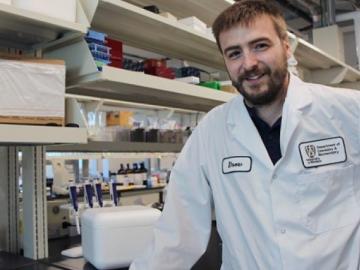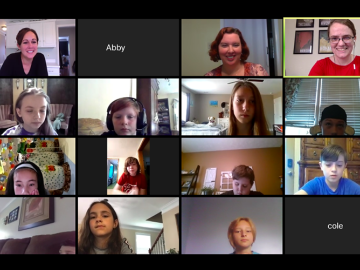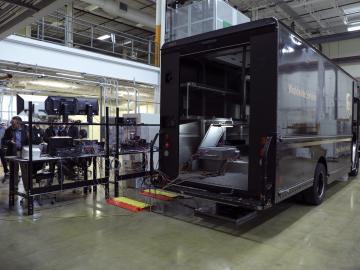
Filter News
Area of Research
- Advanced Manufacturing (1)
- Biology and Environment (11)
- Computer Science (1)
- Energy Science (27)
- Fusion and Fission (3)
- Fusion Energy (4)
- Isotopes (1)
- Materials (14)
- Materials for Computing (4)
- National Security (5)
- Neutron Science (30)
- Nuclear Science and Technology (12)
- Quantum information Science (1)
- Supercomputing (17)
News Topics
- (-) Artificial Intelligence (8)
- (-) Biomedical (22)
- (-) Clean Water (2)
- (-) Fusion (13)
- (-) Molten Salt (2)
- (-) Neutron Science (35)
- (-) Security (3)
- 3-D Printing/Advanced Manufacturing (28)
- Advanced Reactors (14)
- Big Data (11)
- Bioenergy (13)
- Biology (5)
- Biotechnology (2)
- Buildings (1)
- Chemical Sciences (5)
- Composites (1)
- Computer Science (39)
- Coronavirus (25)
- Critical Materials (2)
- Cybersecurity (4)
- Energy Storage (21)
- Environment (29)
- Exascale Computing (3)
- Frontier (1)
- Grid (7)
- High-Performance Computing (3)
- Isotopes (8)
- Machine Learning (8)
- Materials (2)
- Materials Science (37)
- Mathematics (2)
- Mercury (1)
- Microscopy (8)
- Nanotechnology (17)
- National Security (2)
- Nuclear Energy (31)
- Physics (13)
- Polymers (7)
- Quantum Science (14)
- Space Exploration (2)
- Summit (17)
- Transportation (15)
Media Contacts

Oak Ridge National Laboratory researchers have discovered a better way to separate actinium-227, a rare isotope essential for an FDA-approved cancer treatment.

Does vaping and smoking e-cigarettes put you at higher risk of COVID-19 complications? UWindsor’s Drew Marquardt is trying to answer that question with research into how the toxicants in the oils of vapes and e-cigarettes affect lung function.

Research by an international team led by Duke University and the Department of Energy’s Oak Ridge National Laboratory scientists could speed the way to safer rechargeable batteries for consumer electronics such as laptops and cellphones.

With the rise of the global pandemic, Omar Demerdash, a Liane B. Russell Distinguished Staff Fellow at ORNL since 2018, has become laser-focused on potential avenues to COVID-19 therapies.

Scientists have tapped the immense power of the Summit supercomputer at Oak Ridge National Laboratory to comb through millions of medical journal articles to identify potential vaccines, drugs and effective measures that could suppress or stop the

Oak Ridge National Laboratory researchers have developed a thin film, highly conductive solid-state electrolyte made of a polymer and ceramic-based composite for lithium metal batteries.

With Tennessee schools online for the rest of the school year, researchers at ORNL are making remote learning more engaging by “Zooming” into virtual classrooms to tell students about their science and their work at a national laboratory.

Researchers at Oak Ridge National Laboratory demonstrated a 20-kilowatt bi-directional wireless charging system on a UPS plug-in hybrid electric delivery truck, advancing the technology to a larger class of vehicles and enabling a new energy storage method for fleet owners and their facilities.

In the 1960s, Oak Ridge National Laboratory's four-year Molten Salt Reactor Experiment tested the viability of liquid fuel reactors for commercial power generation. Results from that historic experiment recently became the basis for the first-ever molten salt reactor benchmark.

Suman Debnath, a researcher at ORNL, has been elevated to the grade of senior member of the Institute of Electrical and Electronics Engineers (IEEE).


